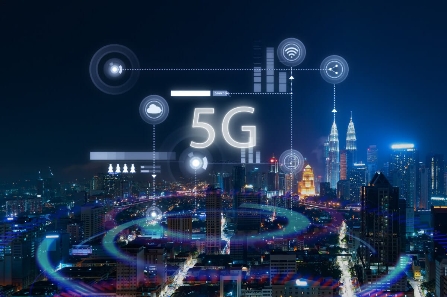
The deployment of 5G technology has significant implications for global competitiveness and geopolitical dynamics, influencing international relations, economic power balances, and security concerns. Below are key aspects to consider:
1. Technological Leadership – Race for Advancement: Countries that lead in 5G development can position themselves as global technology leaders, gaining influence over technological standards and practices.




– **Innovation Hub**: Nations investing heavily in 5G infrastructure may cultivate vibrant tech ecosystems, attracting talent, investment, and research, enhancing their competitive edge.
### 2. **Economic Power Shift**
– **New Markets and Opportunities**: Countries that successfully deploy 5G can capitalize on new economic opportunities across sectors such as industry, healthcare, and smart cities, potentially displacing others that lag behind.
– **Supply Chain Realignment**: The integration of 5G across industries may lead to shifts in global supply chains, as countries adapt to the digital economy.
### 3. **Geopolitical Tensions**
– **Tech Dominance**: Countries like the United States and China have prioritized 5G technology as a means to secure economic and military advantages, leading to heightened tensions and competition.
– **Influence through Infrastructure**: Nations may seek to establish strategic partnerships and alliances based on 5G infrastructure offerings, with implications for global power dynamics.
### 4. **Cybersecurity and Espionage Concerns**
– **Increased Vulnerabilities**: As more devices connect to 5G networks, the potential threat landscape expands, raising concerns over cybersecurity.
– **Data Security and Sovereignty**: Countries worry about foreign control over critical infrastructure and data, leading to calls for greater national control over telecommunications.
### 5. **Regulatory and Standardization Power**
– **Setting Global Standards**: Leading nations can influence global standards and regulations surrounding 5G, affecting how technologies are implemented and managed worldwide.
– **Trade Policies and Sanctions**: Geopolitical conflicts may lead to trade barriers against companies or countries associated with adversarial 5G technologies, impacting market access and competition.
### 6. **Alliances and Partnerships**
– **Strategic Collaborations**: Countries may form alliances to fortify their positions in 5G development and deployment, sharing resources, knowledge, and technology.
– **Global Initiatives**: Collaborative global initiatives may emerge to address challenges posed by 5G, such as cybersecurity and equitable access, emphasizing the importance of multilateral cooperation.
### 7. **Impact on Developing Nations**
– **Digital Divide**: Nations that are slower to adopt 5G may fall further behind economically and technologically, exacerbating global inequalities.
– **Investment and Dependency**: Developing countries may become reliant on technology from advanced economies, leading to questions about sovereignty and influence.
### 8. **Military Applications**
– **Defense Capabilities**: The integration of 5G into military applications promises enhanced communication, coordination, and capabilities for defense systems.
– **Strategic Competition**: Nations may accelerate their 5G development to ensure military advantages over rivals, transforming defense strategies and international security dynamics.
### Conclusion
The geopolitical dynamics surrounding 5G technology reflect a complex interplay of economic power, technological advancement, and security concerns. As nations navigate this changing landscape, efforts to promote innovation, secure infrastructure from foreign influence, and foster international cooperation will be vital. The implications of 5G technology will not only shape the future of industries and economies but also the geopolitical map, influencing how nations interact and compete on the global stage. Addressing the challenges and opportunities presented by 5G will require proactive strategies, collaborative frameworks, and a commitment to responsible governance in a rapidly evolving digital world.


Leave a Reply